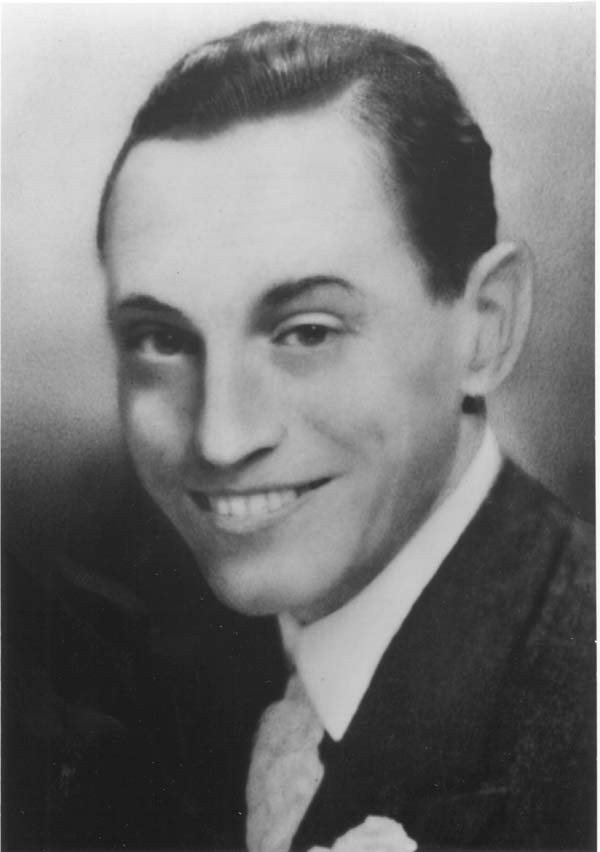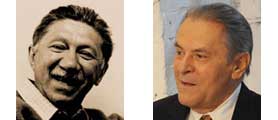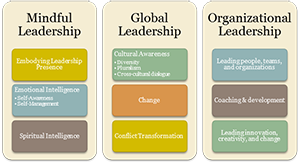Rediscovering the Roots of Atlantic University
By James Van Auken, MBA
 Years ago, when Virginia Beach, Va., was just a simple fishing village, Atlantic University was a dream being discussed on the sand dunes. The dream was one of bridging mainstream education with the fascinating emergence of philosophies expressed by Edgar Cayce. Atlantic’s co-founders, Edgar Cayce and New York stockbroker Morten Blumenthal, discussed the possibilities and came up with a three-pronged concept: spiritual philosophy, cultural studies, and business [see Edgar Cayce reading 254-48 for details].
Years ago, when Virginia Beach, Va., was just a simple fishing village, Atlantic University was a dream being discussed on the sand dunes. The dream was one of bridging mainstream education with the fascinating emergence of philosophies expressed by Edgar Cayce. Atlantic’s co-founders, Edgar Cayce and New York stockbroker Morten Blumenthal, discussed the possibilities and came up with a three-pronged concept: spiritual philosophy, cultural studies, and business [see Edgar Cayce reading 254-48 for details].

Morten Blumenthal
In early 1929, these two men laid the groundwork for the university that opened its doors in 1930. While the dream never died, Atlantic could not keep its doors open after funding dried up from the 1929 stock market crash.
Fifty-five years later, a group of psychologists led by Jim Windsor, PhD, put their heads together and brought Atlantic University back from the dead. They saw that Abraham Maslow and Stanislov Grof’s new psychology movement, Transpersonal Psychology, blended well with the original vision of Atlantic University.
In the mid-20th century, there were two major schools of psychology: behaviorism and Freudianism. Behaviorism is the study of the behavior of animals in order to better understand humans Freudianism is based on psychoanalysis. Maslow noticed unanswered questions about the human condition: what about the uniquely human experiences of love, art, self-consciousness, personal freedom, morality, and religion; and what about healthy populations, human potential, and higher functions of the psyche? This birthed Humanistic Psychology. But admittedly, Grof and Maslow asserted that they had forgotten something: they’d forgotten the spiritual dimension of the human psyche, which they named Transpersonal Psychology. Academics and psychologists Henry Reed, PhD, Charles Thomas Cayce, PhD, Harmon Bro, PhD, Mark Thurston, PhD, and others saw the connection of transpersonal studies and Edgar Cayce philosophy. They launched a new master’s degree program in Transpersonal Studies in 1986, reestablishing Atlantic University and gaining national accreditation. The program is still thriving and has more than 250 graduates.

Abraham Maslow and Stanislov Grof
image source: en.wikipedia.org
From Our Founding Vision to the Present
Students in Atlantic’s Transpersonal Studies program explore areas of higher consciousness, expended identity, spirituality, and human potential. They study exceptional human experiences and explore spiritual awakening versus underlying mental illness. Students practice meditation, dream work, and personal mythology and learn about research. This is a unique and valuable program designed for people interested in exploring these concepts in an academic setting in order to apply them in a wider context.
This program in transpersonal studies has been the norm for Atlantic University since 1986. Now, nearly 30 years later, Atlantic University is returning to the original dream and introducing a new program: the Master of Arts in Leadership Studies.
Back in 1929, Mort and Edgar envisioned a university that incorporated spiritual philosophy, culture, and business. The MA in Transpersonal Studies broadly covers spiritual philosophy. The new program not only covers all three areas, it also reaches out much more into the mainstream area of education with a deep infusion of the core values of Atlantic University. The program is designed with the value of helping people achieve higher human potential and be of profound service to others. Can you imagine leaders at all levels, in all industries, living at their highest human potential—with the personal values of being of profound service to others? That’s a special picture, and one that we wish to create for our world.
The MA in Leadership Studies approaches leadership through three unique lenses: mindful leadership, global leadership, and organizational leadership. (see chart below)

The Mindful Leadership area is designed for established leaders who are looking to improve upon themselves as leaders, and to become more self-aware and self-managed, recognizing that their actions affect the people around them—their behavior and their motivation. Students in this specialization will utilize contemplative practices, explore what it means to have genuine presence, and examine the work of thinkers such as Otto Scharmer, Peter Senge, Daniel Goleman, Richard Boyatzis, Jon Kabat-Zinn, and Bill George.
The Global Leadership area is designed for people who work in areas that intersect with multiple cultures. With the improvements in technology and ease of travel, our world has become smaller, and this focus considers the impact of those changes and prepares leaders to evolve their understanding of what it means to be a citizen of the world. Students in this specialization will focus on increasing cultural awareness, managing change, and transforming conflict.
The Organizational Leadership area is designed for people who may be new to their company or new to their position. The focus is to guide students through the methods and practical application of leading people, teams, and even organizations themselves, as well as to teach students how to coach and develop leaders. Students will explore theories and will engage in applying that knowledge in order to truly gain understanding and self-empowerment.
Three Unique Lenses: Specializations

Select image to view chart Larger
Students in the new MA in Leadership Studies will take courses in all three of these specializations and will then take a deeper dive into one of the three areas. The curriculum was meticulously created for the emerging, aspiring, or established leader in any and all industries. The highly qualified faculty members come from a variety of industries and backgrounds, and are profoundly inspired to work with students. Visit our faculty page for details.
We invite you to be a part of the first cohort, beginning in January of 2016. We are accepting applications now through mid-November. If you’d like to learn more about this unique and valuable program—if this speaks to you—visit our website or contact our office for more information. If you think this might interest someone you know, please share it with them.
Atlantic University is looking to make dreams a reality. Join our mailing list, visit our website, apply for a program, and share with your loved ones. We are a non-profit university, offering accredited online education.
 James Van Auken is the Vice President of Academic Affairs at Atlantic University where he works with faculty and administrative staff to fulfill the university’s mission. He is also a faculty member at Atlantic University and the Cayce/Reilly School of Massage where he teaches courses on leadership and mindfulness.
James Van Auken is the Vice President of Academic Affairs at Atlantic University where he works with faculty and administrative staff to fulfill the university’s mission. He is also a faculty member at Atlantic University and the Cayce/Reilly School of Massage where he teaches courses on leadership and mindfulness.




